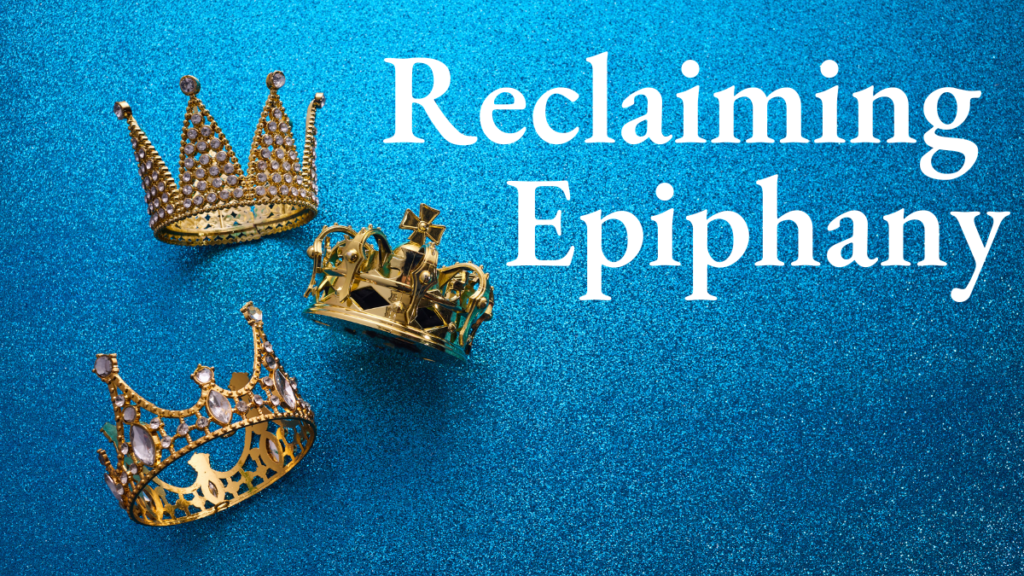
The Episcopal Church’s former Presiding Bishop, Michael Curry, has called for Christians to “reclaim Epiphany,” the feast that celebrates the arrival of mysterious visitors from the east, sometimes called magi or kings, to visit the infant Jesus. In the United States, January 6 has become synonymous with political violence and turmoil as September 11 is synonymous with international terrorism. But before it was the anniversary of the capitol attacks, January 6 was for centuries a feast commemorating the manifestation of God in Jesus to the whole world, in the persons of ancient astrologers who came seeking him from afar, the feast of the Epiphany.
The story recounted in the first chapter of Matthew is that the wise ones saw the star of the new ruler of the Jewish people at its rising and embarked on a multi-year trek across the desert to seek and pay homage to the young king. Their asking after this infant ruler in the capital of Jerusalem caused consternation among Herod, the puppet-king of the Roman Emperor, and his court. They knew the Messiah, the anointed ruler sent by God, was to be born in Bethlehem, but they were not overjoyed at the news of his birth. The magi, however, followed their directions to Bethlehem, and again saw the star going ahead of them. Matthew relates that it stopped over the place where the child was, and the magi were overwhelmed with joy. They entered the house and bowed down and worshipped him, offering gifts of gold, frankincense, and myrrh. With the assistance of angelic visitations in dreams, the magi and holy family were able to foil King Herod’s plot to have the infant Messiah killed.
I like to think of the magi as the original spiritual seekers. They had little materially to gain from their quest, yet they invested resources and time in seeking out and paying homage to the newborn king of another nation. What drew them? What were their hopes? Were they surprised at what they found at the end of their quest? How did this “epiphany” affect the rest of their lives?
The magi have much to teach us in our own spiritual seeking, which I believe is a search not only for meaning in our individual spiritual lives, but for deep healing, for peace with justice, in our world. First, they remind us that we need each other. It would have been insanity for a single person to set off on a quest across the desert; in community, they could sustain their seeking. The magi also defined what they were seeking (the newborn Jewish king) but they were open to the surprises the journey brought them along the way. The magi sought counsel with the elders in Jerusalem, but in the end trusted the divine revelation of their dreams. Christmas cards have led to a common misperception that the star went ahead of the magi their whole journey long. Rather, they observed the star at its rising and did not see it again until they departed Jerusalem for Bethlehem. They persisted in their quest even when the sign which had prompted it was not visible. In the end, the magi found what they seek. What we all seek— meaning, healing, peace, justice— is there for us. Our epiphany is found in the seeking of it, persistently, faithfully, with open minds, and together. May we, too, be surprised and overwhelmed by joy.
–Rev. Amy

Recent Comments